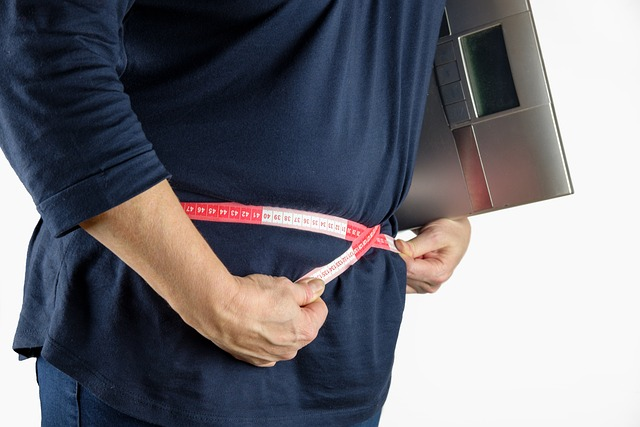A weight loss plateau is unfortunately an inevitable part of the weight loss journey. There are many reasons for a weight loss plateau and sometimes you just need to stick it out until you see further results. Your weight loss can begin to plateau as you reach a lower body fat percentage, or possibly because you need to increase your exercise regime or decrease your calorie intake.
Below we look at the common reasons for a weight loss plateau and how long it can take for a weight loss plateau to end.

What is a Weight Loss Plateau?
A weight loss plateau happens when your weight loss comes to a standstill, or you are only losing weight very slowly compared to previous results. This is completely normal, even if you were successfully losing weight from a diet and exercise programme for several weeks or months before.
Coming to a standstill with weight loss does not mean you cannot lose more weight. You may just need to make some tweaks to your weight loss goals and your current regime, or you may just need to stick it out for a little longer.
When you first start losing weight, you may notice quick results, as you have completely changed your diet and exercise routine. It is normal for weight loss to plateau as your body becomes accustomed to these lifestyle changes.
Causes of a Weight Loss Plateau
You can put a stop to a weight loss plateau by determining the cause and making an action plan. Below are some common causes of a weight loss plateau.
Calorie Deficit
The first consideration, if you reach a weight loss plateau, is your calorie deficit. To lose weight, you need to burn more calories than you take in. Dietary experts recommend a calorie deficit of 600 calories a day.
This also means calculating how much exercise you need to do to burn the calories you consume. As you burn more calories than you consume, your body will begin using stored fat as energy, causing weight loss.
As you continue to lose weight, you may need to look back at this calorie deficit and see whether you need to make any adjustments. If you were only in a calorie deficit of 200 to 300 calories before, you can look at increasing this to end your plateau.
Nutrient Deficiencies
Eating a poor diet and not getting enough nutrients can make it harder to lose weight. Crash diets are often a cause for nutrient deficiencies, which can cause your body to store fat rather than burn it. If you do not eat enough protein, you could find it harder to reduce snacking, as protein can help you feel fuller for longer.
Lacking vitamin D could also cause a lack of weight loss, as it is thought that vitamin D plays a role in how your body stores fat cells. Vitamin B deficiency could also cause a plateau, as these help your body metabolise fat. You should speak with your doctor if you think you have a nutrient deficiency, so they can perform a blood test.
Hormonal Imbalances
Your hormones affect your weight and certain hormones control weight loss, hunger levels, and appetite. For example, if you have a thyroid hormonal imbalance, your metabolism may be affected, making it difficult to lose weight.
Lack of Adherence to Diet and Exercise Regimen
A weight loss plateau can be caused by a lack of adherence to your current diet and exercise regime. If you do not reach a calorie deficit, you simply won’t lose weight. We are all human and there may be a few days or a week where you don’t follow your weight loss plan.
A plateau is a sign that you need to get back on track with your regimen to continue losing weight.
Signs of a Weight Loss Plateau
Signs that you are in a weight loss plateau include:
- Little or no weight loss, even if you are following your diet and exercise plan correctly
- No longer feeling hungry
- Burning fewer calories from the same exercises
- Feeling fatigued or generally ill (this could be a sign of a nutritional deficiency)
- You notice pains in your stomach when you eat (this is a sign you aren’t eating enough)

How Long Does a Weight Loss Plateau Last?
A plateau can last anywhere from a few days to several weeks. This depends on the reason for your plateau and what strategies you implement to overcome it.
For example, if you reach a weight loss plateau due to a nutritional deficiency and implement a more balanced diet immediately, it may take several weeks to improve your deficiency and get back to homeostasis.
If you have been lacking adherence to your diet and exercise regime and plateau, making immediate changes could see your plateau end in as little as a week.
Can the Weight Loss Plateau Go Away on its Own?
A weight loss plateau will not go away on its own, as it is a sign that something is missing from your diet or that you need to shake up your current regime. Don’t worry though, as we have a range of strategies below to overcome a weight loss plateau.
Strategies to Overcome a Weight Loss Plateau
If you are experiencing a weight loss plateau, you have come to the right place. Below are a number of strategies you can try to overcome a weight loss plateau for good.
Increase Intensity and Frequency of Workouts
As your body becomes stronger and fitter, you may notice that you don’t become as breathless, sweaty, or tired from your workouts. This is a sign that you need to increase the intensity and frequency of your workouts to remain in the same calorie deficit as before.
The best way to avoid another plateau is by slowly increasing the intensity and frequency of your workouts, by adding more sets, more workout days, and more reps. This will also keep your exercise regime interesting, meaning you are less likely to become bored.
Check Caloric Requirements and Track Them
When things aren’t going the way you want them to with your weight loss, it could be a sign to check your caloric requirements and track them. After losing weight or increasing your exercise, you may need fewer or more calories to give your body what it needs as well as remaining in a calorie deficit.
You should calculate your daily calories using the BMR (basal metabolic rate) method. This will change as your body weight changes. The calculation can be a little confusing so you may need to ask your doctor or a nutritional expert for a hand, but this will give you a more accurate representation of your caloric requirements as your body changes.
Be Active Throughout the Day
Exercising is not the only way to burn calories. If you reach a weight loss plateau, it may be caused by a sedentary lifestyle. We burn calories through every movement and breath. It stands to reason then, that the more you move and are active in daily life, the more weight you can lose.
Exercising can only help so much if you spend the rest of the day sitting down, with little movement. Try to move around for at least five minutes every hour and have regular standing breaks if you work a desk job.
Consume High Amounts of Protein and Fibre
Protein can have a major contribution to weight loss, as it suppresses the hunger hormone. This makes you feel fuller after eating, which can limit snacking. Protein also boosts your metabolic rate.
Fibre will help your body to increase insulin sensitivity, meaning you can burn fat easily. It can also help with bowel movements and lower blood pressure, both of which contribute to a healthy weight loss journey.
Get Enough Sleep
Getting enough good-quality sleep is essential for losing weight. Poor sleep can lead to an increase in the stress hormone cortisol, which can increase your appetite. During sleep, our body rests and recovers, meaning we can give our all during workouts. When you don’t get enough sleep, it can be harder to finish workouts and burn the same number of calories.
Manage Stress Levels
Stress can cause a weight loss plateau as it increases hunger levels and decreases motivation. If you notice your stress levels are through the roof, try breathing techniques, meditation, or removing unnecessary stressors from your life. By managing your stress levels, you can continue losing weight.
Never Skip Meals
Reaching a weight loss plateau instinctively causes people to skip meals and reduce their calorie intake further. Skipping meals can actually negatively impact your weight loss, by causing blood sugar levels to rise and decreasing your metabolic rate.
Approaching Weight Loss in the Right Way
To approach weight loss in the right way, you should avoid fad and crash diets that involve limiting what you eat. This can cause poor adherence, stress, and nutritional deficiencies, which all cause a weight loss plateau.
Instead, approach weight loss as a lifestyle change. To successfully lose weight and keep it off, you need to change how you eat, what kind of foods you consume, how often you exercise, and how active you are in daily life.
FAQs
How to Easily Get Past a Weight Loss Plateau?
Weight loss plateaus are one of the most frustrating parts of a weight loss journey. During this time, it is important not to give up and instead look at what could be going wrong. To easily get past a weight loss plateau, look at making a revision to your exercise or diet regime, being more active outside of the gym, managing stress levels, and getting enough good-quality sleep.
If you believe your weight loss plateau could be caused by a nutritional deficiency or hormonal imbalance, speak to your doctor who can check this for you. This way, you can determine the cause of the plateau and easily get past it.
How to Know if You’re on a Weight Loss Plateau?
You may be on a weight loss plateau if you have stopped losing weight despite following the same plan. You may also notice symptoms like feeling generally unwell or fatigued, not feeling hungry, or that you are burning fewer calories from the same exercises. These are all signs that there is something underlying that is causing a weight loss plateau.
Bottom Line
Hitting a weight loss plateau is demotivating but not impossible to overcome. By looking for certain signs, you can determine whether you are in a weight loss plateau and what the cause may be. Through a change in your daily habits, you can overcome your weight loss plateau.
Conclusion
A weight loss plateau can happen at any point during weight loss and is not necessarily a sign that you have reached the end of your weight loss. By determining the cause of your plateau and making appropriate changes, you can end a weight loss plateau quickly.
While we've ensured that everything you read on the Health Centre is medically reviewed and approved, information presented here is not intended to be a substitute for professional medical advice, diagnosis, or treatment. It should never be relied upon for specific medical advice. If you have any questions or concerns, please talk to your doctor.




